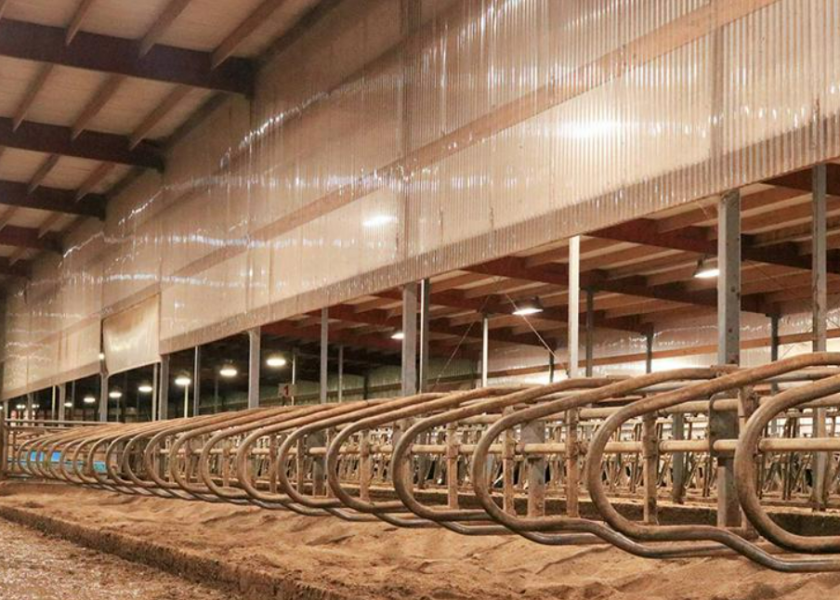Recycled Bedding A Positive on Milk Quality?

The use of reclaimed sand and recycled manure solids has increased to help dairies lower bedding costs. Cornell research has shown that bedding costs can be reduced by $0.30/cwt. of milk produced when managed correctly. One concern for adopting recycled bedding systems has been the potential negative impact on milk quality. However, when bedding meets quality thresholds, farms that use recycled bedding produce the same quality of milk as those that use fresh bedding.
DRY MATTER PERCENT
Like when managing forages, dry matter percent can be used as a threshold for recycled bedding quality. The dryness of the bedding material should determine timing of reentry of bedding. In both systems, managing recycled bedding piles is key to allowing the bedding to be dried down. Piles should be placed in an area where liquid from the stack is allowed to drain, and little additional moisture will be added. Dry matter percent should range from 35% to 40% for both reclaimed sand and recycled manure. Higher moisture can lead to microbial growth.
BACTERIA COUNTS
Bacterial analysis is a more complicated measure that is completed in a lab. However, periodically taking a bacteria sample allows the monitoring of bedding quality to meet cow health and milk quality goals. Cows are at a low risk for mastitis cases when bacteria counts are less than 300,000 colony-forming units per gram. However, over 1 million colony-forming units per gram are associated with a high risk of mastitis. Research from Cornell has indicated that bacteria counts from new bedding have little impact on bacteria counts of bedding removed from stalls.
ORGANIC MATTER
Organic material supports bacterial growth. Therefore, organic matter content should be collected periodically in sand systems. Measurements can be calculated from dry matter tests. The amount of organic material is the result of the total weight of the bedding minus the ash from the dry matter tests. Successful sand recycling systems should result in the reclaimed sand having less than 1.5% organic matter.
Recycled bedding has the potential for farms to save on their bedding costs and provide more efficient manure management. Using recycled manure and bedding material does not mean cow health or milk quality needs to suffer. Keeping organic matter and moisture low will help reduce bacteria matter when the reclaimed or recycled bedding meets quality thresholds.







